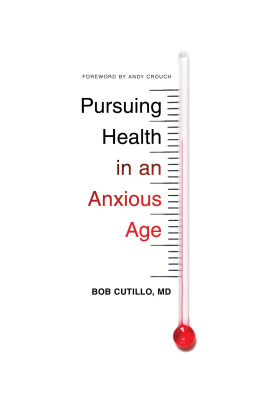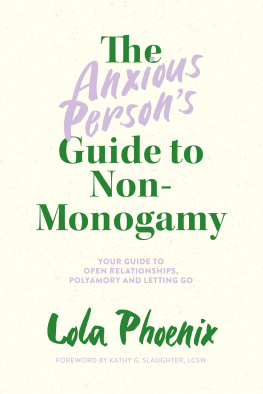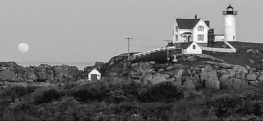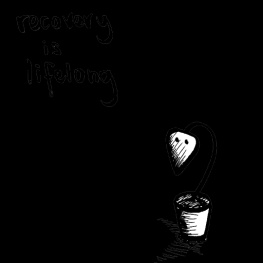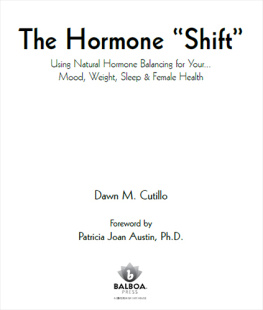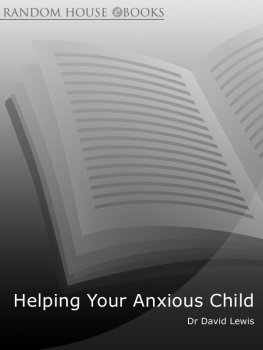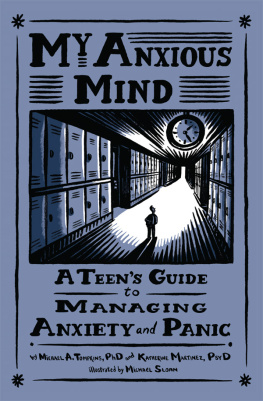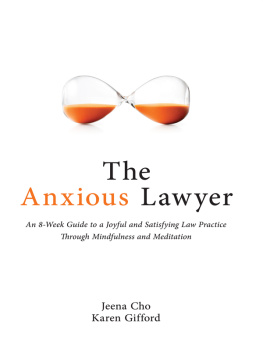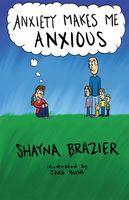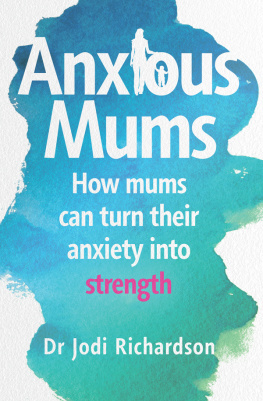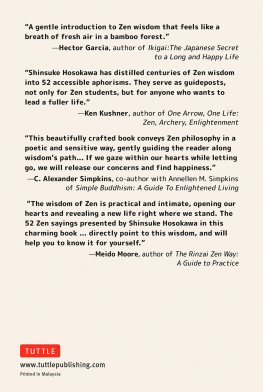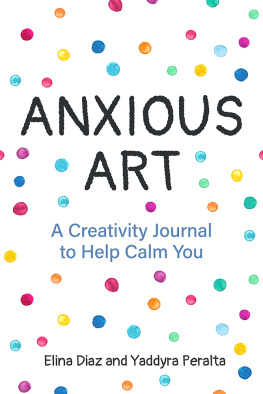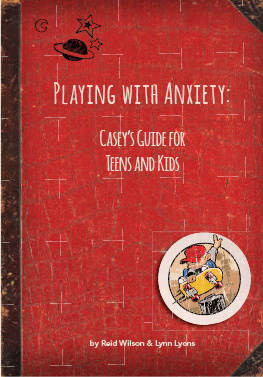Bob Cutillo - Pursuing Health in an Anxious Age
Here you can read online Bob Cutillo - Pursuing Health in an Anxious Age full text of the book (entire story) in english for free. Download pdf and epub, get meaning, cover and reviews about this ebook. year: 2016, publisher: Crossway, genre: Politics. Description of the work, (preface) as well as reviews are available. Best literature library LitArk.com created for fans of good reading and offers a wide selection of genres:
Romance novel
Science fiction
Adventure
Detective
Science
History
Home and family
Prose
Art
Politics
Computer
Non-fiction
Religion
Business
Children
Humor
Choose a favorite category and find really read worthwhile books. Enjoy immersion in the world of imagination, feel the emotions of the characters or learn something new for yourself, make an fascinating discovery.
- Book:Pursuing Health in an Anxious Age
- Author:
- Publisher:Crossway
- Genre:
- Year:2016
- Rating:4 / 5
- Favourites:Add to favourites
- Your mark:
- 80
- 1
- 2
- 3
- 4
- 5
Pursuing Health in an Anxious Age: summary, description and annotation
We offer to read an annotation, description, summary or preface (depends on what the author of the book "Pursuing Health in an Anxious Age" wrote himself). If you haven't found the necessary information about the book — write in the comments, we will try to find it.
Pursuing Health in an Anxious Age — read online for free the complete book (whole text) full work
Below is the text of the book, divided by pages. System saving the place of the last page read, allows you to conveniently read the book "Pursuing Health in an Anxious Age" online for free, without having to search again every time where you left off. Put a bookmark, and you can go to the page where you finished reading at any time.
Font size:
Interval:
Bookmark:
Thank you for downloading this Crossway book.
Sign-up for the Crossway Newsletter for updates on special offers, new resources, and exciting global ministry initiatives:
Crossway Newsletter
Or, if you prefer, we would love to connect with you online:
|
|
|
|
The Greatest Fear
Is There Enough?
You shall know the truth and the truth shall make you odd.
Flannery OConnor
Flannery OConnor was twenty - five years old when she was diagnosed with lupus, a disease named for the erosive facial rash that looks like the bite of a wolf. For the rest of her life she battled both the disease and the effects of cortisone used to treat it, eventually depending on crutches to get around. Late in life, when very ill, she wrote to a friend, The wolf, Im afraid, is inside tearing up the place. One month later, at the age of thirty -nine, she was dead.
Though she minimized the impact of the disease on her life and writing, it was because of her illness that she was forced to return to her birthplace of Georgia and live her remaining years on a small farm. Only able to write for two or three useful hours a day before fatigue set in, her circumscribed life could have been a stifling limitation. Instead, it became a great strength. Accepting these limitations as factors that sharpened her view of reality, she saw odd but universal truths from the particularities of her place and became one of the most influential American novelists of the twentieth century. We are limited human beings, she said, and the novel is a product of our best limitations.
During her life, Flannery OConnor apprehended the unseen by immersing herself in the seen of her rural Southern culture, expressing her strange but insightful view of reality in her writing. Many like me, immersed in medicine at the margins with the disenfranchised, have also apprehended some strange and often unseen truths. If they make us odd, they can also give us vision and the depth to endure in striving for justice in health care. Succinctly stated, they are: (1) seeing you depends on seeing me in you; (2) my health depends on your health; and (3) the health of society depends on how it cares for its poorest members. Whether odd to you or obvious, each of these dependencies needs a closer look.
We Are All Vulnerable
Like Humpty Dumpty long ago, we have deeply desired a stance of invulnerability from which to pursue health. Yet the disturbing truth that we are vulnerable and needy remains firmly fixed at the center of our being. This recognition may yet be the source of our redemption. But it can also lead us to work for justice, especially when we realize that we share this vulnerability to suffering and death with every other human being. To explain, lets look at a natural reaction, a recent event, and a mysterious reality that, though we see it, and then see it again, we still have trouble understanding what we saw.
A Common Experience
When I met Walter, I knew it was something bad. He was my age but looked like he had been ill for many months; thin and wasted, he was holding his stomach and writhing in pain on the exam table. He was living on the streets, which was common for patients who came to this health center for the homeless, but few would have waited this long to see a doctor. Please help me, he said, and I felt a deep desire to do so.
It is a common experience in the doctor - patient relationship to identify with certain patients because we see ourselves in them. We may have a comparable family life, perhaps with an absent parent; or a patient miscarries, causing us to remember our own miscarriage; or, like Flannery OConnor, our patient has lupus, just like our sister. When I considered the possibility that my patient might have undiagnosed colon cancer, it was not an objective hypothesis but a subjective fear. Identifying with him by our same age, I personally felt his vulnerability to it.
We worked as a staff beyond the usual, getting him to the emergency room, helping him with follow - up appointments, and arranging for aftercare when the hospital discharged him after his operationfor colon cancer. I knew all along that my actions were focused by the awareness that he could be me. Was it influencing me too much? Or did I worry that in other cases I wouldnt be as committed and caring, because I wouldnt see myself in the next patient as I did when I looked at Walter?
A Recent Epidemic
The ability to see ourselves in others is an odd gift. By it, perhaps more than anything else, our hearts are enlarged and our compassion aroused. But then we must act, doing what we can to help the hurting person. To permit the pain of another to come near because we know that we are likewise vulnerable is also a burdenbut better to be burdened than buffered and blind.
early availability of simple medical care and basic resources such as protective gowns, gloves, and intravenous fluids could have significantly reduced the spread of the disease and high fatality rate.
But for many, the problems of Africa are not our problems, because, as poet Rudyard Kipling observed, all the people like us are we, and everyone else is they. Disengaged from the mothers and fathers who were losing their children or the children who were losing their parents, the Ebola crisis was a problem of them, not us.
Yet the reality is that pathogens cross borders even if our care does notwhich leads only to greater separation and higher walls. Fearing the possibility that Ebola would come to their own country, many called for quarantine of the affected countries with restriction of all travel in and out. Those who volunteered to go and help, rather than being seen as heroes, were vilified as dangerous risk takers who would carry the virus home and infect their communities.
As in days past, the arrival of contagious epidemics tests the heart at the same time that it challenges protocols for containment. The latest Ebola epidemic was far worse than any prior outbreak. But it will not be the last. To respond wisely and kindly to the next global epidemic, or to unjust systems that oppress many, or even the needs of one single neighbor, we need a sense of When we live as if we are invulnerable, every threat frightens us, making our desire for control greater and our need to separate ourselves stronger. But when we acknowledge our common condition, it opens our hearts to care. Sharing the vulnerability of life with others may even help us perceive a mystery that the usual senses would normally miss.
Twice You Have Seen It, Yet Still You Dont Understand?
Most people familiar with the Bible know there are four Gospels. Written by different authors, each one offers a unique window through which to view the life of Jesus Christ. Sometimes they report the same incident; then there are events that appear only in one Gospel. But no event is repeated as often as the feeding of thousands with only a few bits of food. Each author saw its importance and placed it in his Gospel. But Matthew and Mark report it twice, since it happened on two different occasions. Given how much they had to leave out, why would they choose to include two events with such similar circumstances?
In both instances thousands of people travel to a remote place to find Jesus. There he teaches them many things, heals the sick, and restores the lame and the blind. After many hours pass, the people are hungry, but food is scarce, and they are far from town. In each case, Jesus responds in a similar way. He asks them what they have: one time there are five thousand to feed with five loaves of bread and two fish; the next time four thousand have gathered, with seven loaves but no fish. Then Jesus gives thanks for the food, breaks it into pieces, and distributes it to everyone. And after all are satisfied, there are basketfuls of leftovers.
Next pageFont size:
Interval:
Bookmark:
Similar books «Pursuing Health in an Anxious Age»
Look at similar books to Pursuing Health in an Anxious Age. We have selected literature similar in name and meaning in the hope of providing readers with more options to find new, interesting, not yet read works.
Discussion, reviews of the book Pursuing Health in an Anxious Age and just readers' own opinions. Leave your comments, write what you think about the work, its meaning or the main characters. Specify what exactly you liked and what you didn't like, and why you think so.

